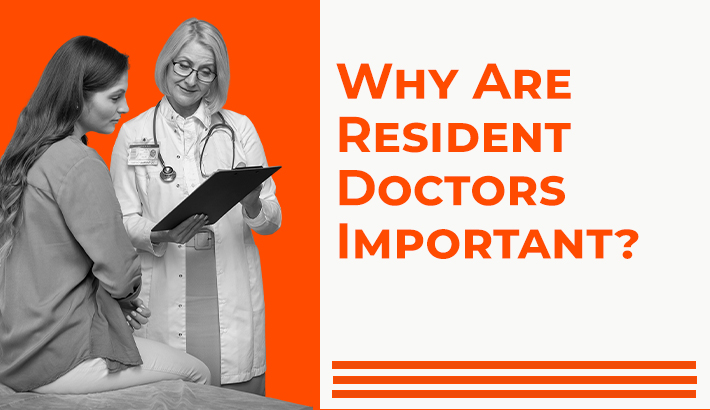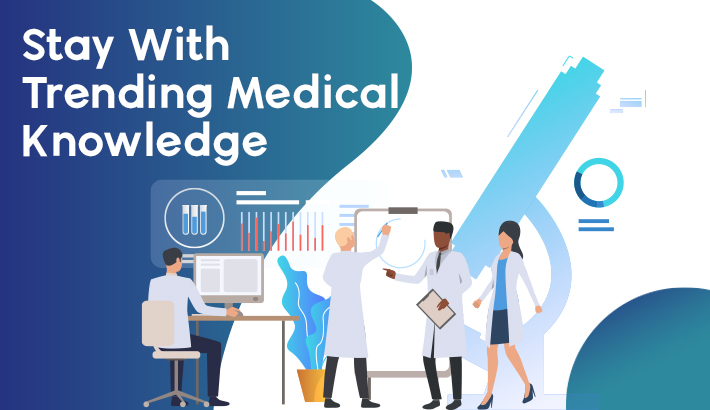Few occupations today have the potential to have as significant an impact on society as one in the medical industry. Healthcare professionals devote their careers to improving humanity, making the medical field a light of hope, compassion, and knowledge. This article examines the variety of medical careers while highlighting their importance, difficulties, and rewards.
A medical job event on your resume may make all the difference, making it one of the finest accomplishments one can create. It not only benefits society as a whole but even those who wish to keep a CV that stands out from the rest. Choosing to pursue a career in medicine is not merely a professional decision; it is a crucial choice that can influence someone's academic and psychological development. Jobs in the medical field provide unique chances for growth, difficulties, and experiences that can significantly alter one's career path.
Finding the perfect portal for students: IndianRDA
India has started a transformational journey in the quest for inclusive and sustainable development, realising the importance of rural development as the foundation of the country's development. The Indian Rural Development Authority (IndianRDA) is a crucial organisation that contributes significantly to the advancement of marginalised populations, rural development, and bridging the urban-rural divide. This article attempts to educate readers on the IndianRDA and its varied contributions to creating a more powerful and fair India.
A government organisation called the Indian Rural Development Authority (IndianRDA) was founded to tackle the problems that rural communities encounter and ensure their all-round development. It is run by the Ministry of Rural Development and focuses on reducing poverty, building infrastructure, creating jobs, and empowering rural communities on a social level.
Since a sizable majority of the Indian population lives in rural areas and experiences economic challenges, one of the IndianRDA's main objectives is to reduce poverty. Millions of rural residents now have access to employment opportunities thanks to the authority's numerous plans and initiatives, including the Mahatma Gandhi National Rural Employment Guarantee Act (MGNREGA). Rural households are guaranteed a minimum of 100 days of employment under the MGNREGA, giving them a reliable source of income and raising their general standard of living.
The Transformative Power: Career Effects of Medical Jobs
A career in medicine has the potential to change someone for the better on both a personal and professional level. The influence of medical careers goes far beyond the field of healthcare, giving people vital skills and attributes that can significantly influence their career paths. The transforming elements of working in medicine include multidisciplinary teamwork, emotional intelligence, adaptability, and the capacity to have a significant influence, to name just a few. No matter the route taken, the experiences obtained during a career in medicine become assets for life, assisting people in finding success and fulfilment in their chosen fields.
Contributing to the medical field plays a pivotal role in your resume and leaves a lasting impression due to its relevance. Such as
1. Personal and Professional Development:
A career in the medical field demands a high level of discipline, dedication, and continuous learning. The pursuit of medical knowledge and expertise fosters personal growth, encouraging individuals to push their limits, develop resilience, and embrace lifelong learning. The best portal for medical students provides an immersive environment that challenges individuals to excel, honing their critical thinking, problem-solving, and decision-making skills. These qualities transcend the boundaries of the medical profession and become valuable assets in any career path.
2. Multidisciplinary Collaboration:
Medical jobs require teamwork and collaboration among various professionals, such as doctors, nurses, technicians, and administrative staff. The ability to work effectively in interdisciplinary teams is a crucial skill developed in the medical field. Through collaborative efforts, medical professionals learn the importance of effective communication, adaptability, and respect for diverse perspectives. These transferable skills are highly sought after in any professional setting, allowing individuals to excel in team-based projects and foster harmonious work environments.
3. Emotional Intelligence and Empathy:
Medical jobs bring individuals face-to-face with the joys and challenges of the human condition. Interacting with patients and their families instills a deep sense of empathy and compassion. Medical professionals learn to navigate delicate and emotionally charged situations, honing their emotional intelligence and interpersonal skills. This heightened understanding of human emotions and experiences can greatly benefit individuals in any career, fostering strong relationships, effective leadership, and the ability to connect with others on a profound level.
4. Adaptability and Resilience:
The medical field is characterized by constant change and innovation. Medical professionals must adapt to new technologies, treatment modalities, and evolving healthcare systems. This adaptability fosters a mindset of resilience and flexibility, enabling individuals to navigate uncertainty and overcome challenges. The ability to embrace change and thrive in dynamic environments is an invaluable skill that can translate into success across various career paths.
5. Making a Meaningful Impact:
Medical jobs provide a unique opportunity to make a positive impact on individuals and society as a whole. The ability to heal, save lives, and alleviate suffering fosters a profound sense of purpose. Knowing that one's work has tangible, life-altering effects creates a deep sense of fulfillment and satisfaction. This intrinsic motivation to make a difference extends beyond the medical field, driving individuals to seek careers that allow them to contribute meaningfully to the well-being of others.
The Heavy Responsibilities of the Medical Field
The medical field is a noble and revered profession that carries immense responsibilities. Healthcare professionals shoulder the crucial task of preserving and improving human life. From diagnosing and treating illnesses to providing compassionate care, the responsibilities within the medical field are both vast and significant. The best portal for medical students epitomizes the commitment to healing and serve as the backbone of the nation's healthcare system.
1. Patient Care and Safety:
One of the primary responsibilities of healthcare professionals is to provide high-quality patient care while ensuring their safety. This involves accurate diagnosis, appropriate treatment, and comprehensive care throughout the patient's journey. The best portal for medical students must be professional and must prioritise patient well-being, employ evidence-based practices, and maintain open communication with patients and their families.
2. Lifesaving Interventions:
Medical professionals have the responsibility to make critical, sometimes life-or-death decisions. Surgeons perform intricate operations, anesthesiologists administer anesthesia, and emergency room physicians stabilize patients in critical conditions.
3. Health Promotion and Disease Prevention:
Healthcare professionals play a pivotal role in promoting public health and preventing diseases. They educate individuals and communities on healthy lifestyles, disease prevention strategies, and vaccination programs.
A Resident Doctors Association is an organization that represents the interests and concerns of resident doctors within a healthcare institution or hospital. Resident doctors are medical graduates who are pursuing postgraduate training in a specific specialty, such as internal medicine, surgery, pediatrics, or obstetrics and gynecology.
The primary purpose of a Resident Doctors Association is to advocate for the rights and welfare of resident doctors. They act as a collective voice to address issues related to working conditions, education, training, and patient care. Resident Doctors Association often works in collaboration with hospital administration, medical institutions, and government bodies to address concerns and negotiate improvements in working conditions and training programs.
Conclusion
The duties in the medical industry are extensive and substantial. The responsibility of providing care for people at their most vulnerable times, making important decisions, improving health, and developing medical knowledge falls on healthcare professionals.
Their duties have an effect on more than just the encounters they have with specific patients; they also have an impact on community wellbeing and the development of healthcare systems. Medical personnel fulfil their duties by their unshakable commitment, knowledge, and ethical behaviour, making the medical profession an essential pillar of society's health and well-being.




